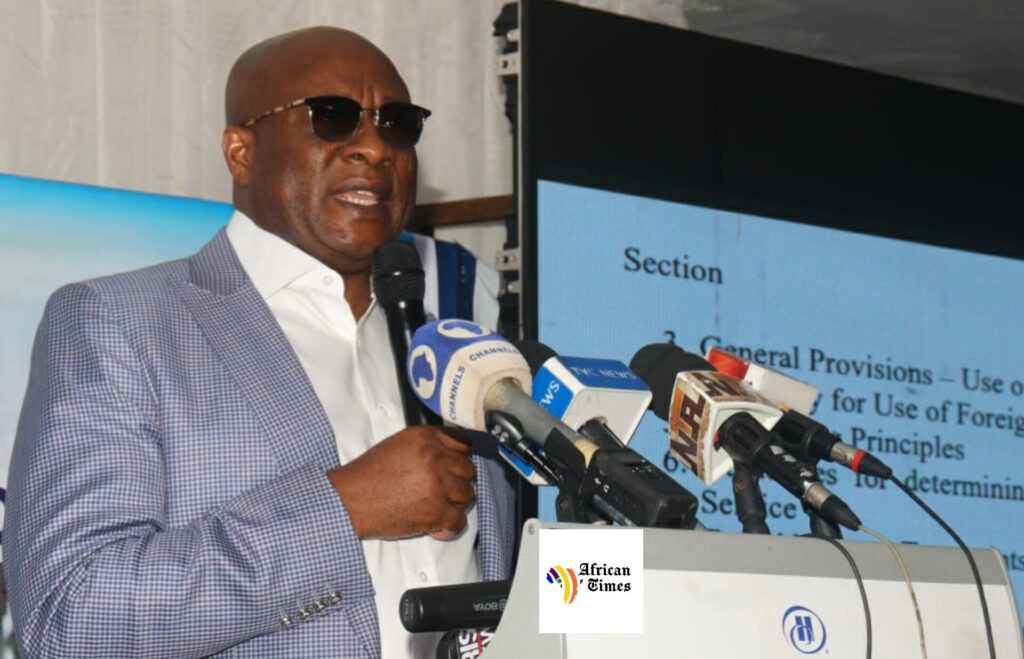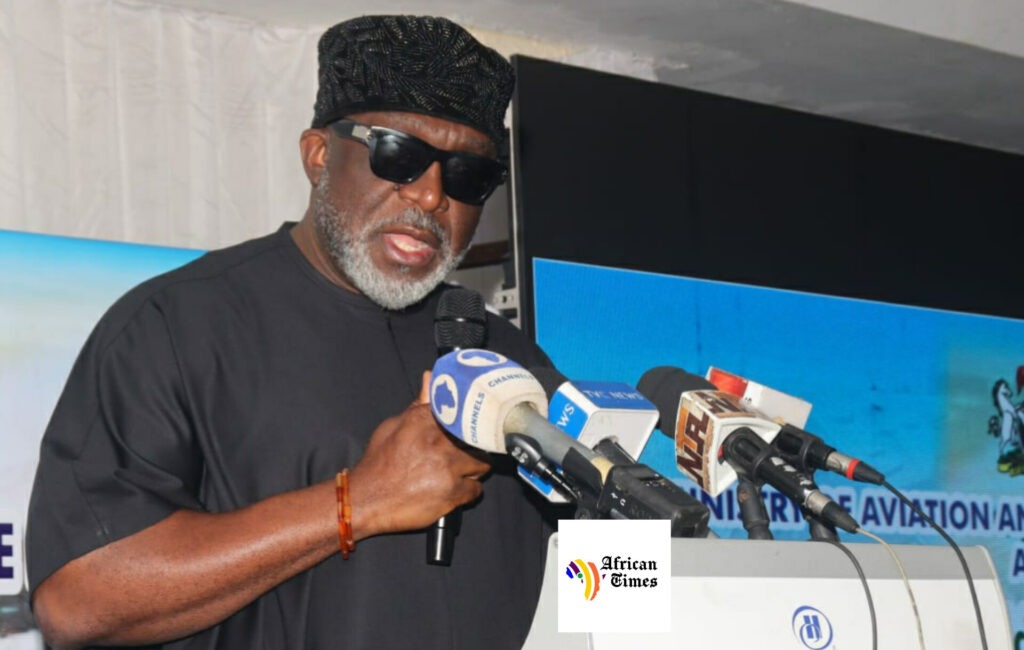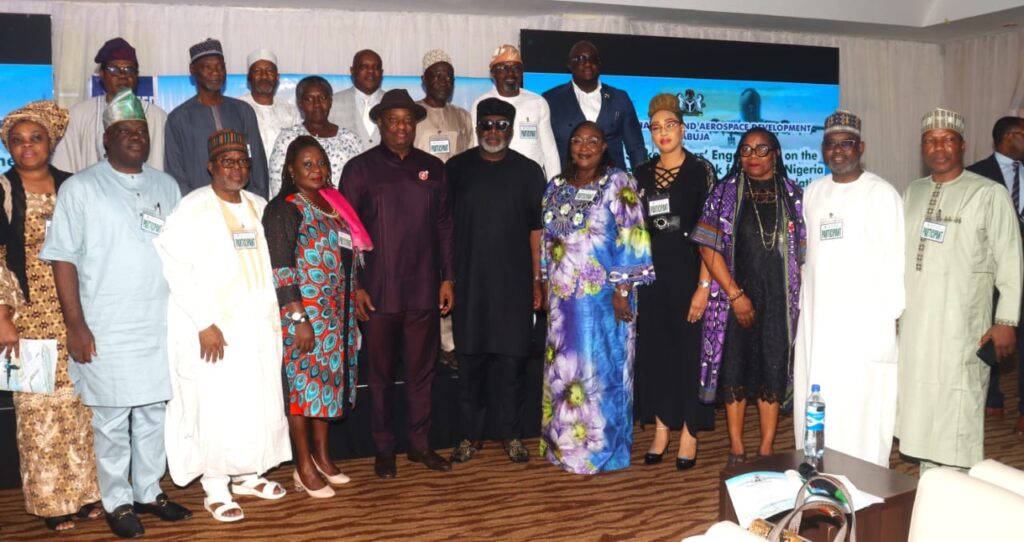Keyamo Advocates for Fly Nigeria Act to Empower Indigenous Airlines, End External Exploitation

Nigeria’s Minister of Aviation and Aerospace Development, Festus Keyamo, has vowed to champion the enactment of the Fly Nigeria Act, a policy designed to prioritise indigenous carriers for government-funded air travel.
Speaking at a one-day Stakeholders’ Engagement on the Legal Framework for the Fly Nigeria Bill and Related Enabling Legislation in Abuja, Keyamo expressed his determination to end the longstanding exploitation of African aviation markets by foreign airlines.
The minister lamented that despite its proposal over 15 years ago, the Fly Nigeria Bill has yet to be implemented. The policy aims to mandate that public servants, contractors, and other government-financed air travel utilise Nigerian-flagged carriers.
Keyamo declared, “Under my tenure, it will happen. This bill has been in the works for over 15 years, and it’s time to make it a reality.”

Keyamo decried what he termed as “global aero-politics” that has systematically stifled African aviation markets to favour foreign carriers. “Foreign airlines dominate the African market without fair competition. Air France, Delta, British Airways, and others come to Nigeria with full flights both ways, largely catering to Nigerian travellers. We must develop our own industry to compete fairly,” he stated.
The minister compared the Fly Nigeria Act to the Cabotage Act in the maritime sector, which prioritises Nigerian-flagged ships, calling for similar protections for domestic airlines.
“There’s a certain external cabal in aviation that ensures local markets are suppressed. This bill is our tool to break that cycle and empower Nigerian airlines,” Keyamo asserted.
The Fly Nigeria Act proposes that all government-funded air travel, whether domestic, regional, or international, must prioritise Nigerian airlines.
Keyamo highlighted the potential impact, noting that even connecting flights would require the first leg to be flown on a Nigerian carrier.
“If a Nigerian airline operates the initial leg of a journey, it must be patronised before transitioning to a foreign carrier,” he explained.
The bill also seeks to address the dominance of foreign airlines in religious pilgrimages such as Hajj and Umrah. Keyamo emphasised that Nigerian carriers would be given priority slots for all pilgrimage flights. “This will ensure the market grows for indigenous operators,” he said.

To facilitate the bill’s passage, Keyamo announced plans to set up a technical committee and present the draft to the Federal Executive Council (FEC) before forwarding it to the National Assembly as an executive bill.
“The senators are waiting. Once we clear the FEC, we’ll proceed to public hearings and the legislative process. This will be a new dawn for Nigerian aviation,” he assured.
Prominent stakeholders expressed optimism about the initiative. The Vice President of the Airline Operators of Nigeria (AON) and Chairman of Air Peace, Dr Allen Onyema, described the move as transformative for Nigeria’s aviation sector.
Similarly, AON spokesperson and Chairman of United Nigeria Airline, Professor Obiora Okonkwo, lauded the renewed efforts to empower domestic airlines.
Earlier, a representative from Olisa Agbakoba Legal presented a proposal titled A Proposal on Aviation Reform by Enacting the Fly Nigeria Act, detailing the bill’s objectives.

Former Aviation Minister, Chief Omotoba, who initially proposed the bill over a decade ago, commended Keyamo for his commitment to reviving the initiative.
Keyamo’s proactive stance also extends to other dormant aviation policies, including the Cape Town Convention.
He reaffirmed his commitment to reviving initiatives that support the local aviation industry, stating, “We are creating markets for our airlines. Once routes are secured, aircraft leasing companies will approach Nigerian operators, knowing there is guaranteed business.”
The minister concluded on an optimistic note, asserting, “This is the beginning of many actions to empower our local operators. The Fly Nigeria Act will ensure we create a sustainable market for indigenous carriers, setting the stage for fair competition and robust growth in Nigeria’s aviation industry.”







